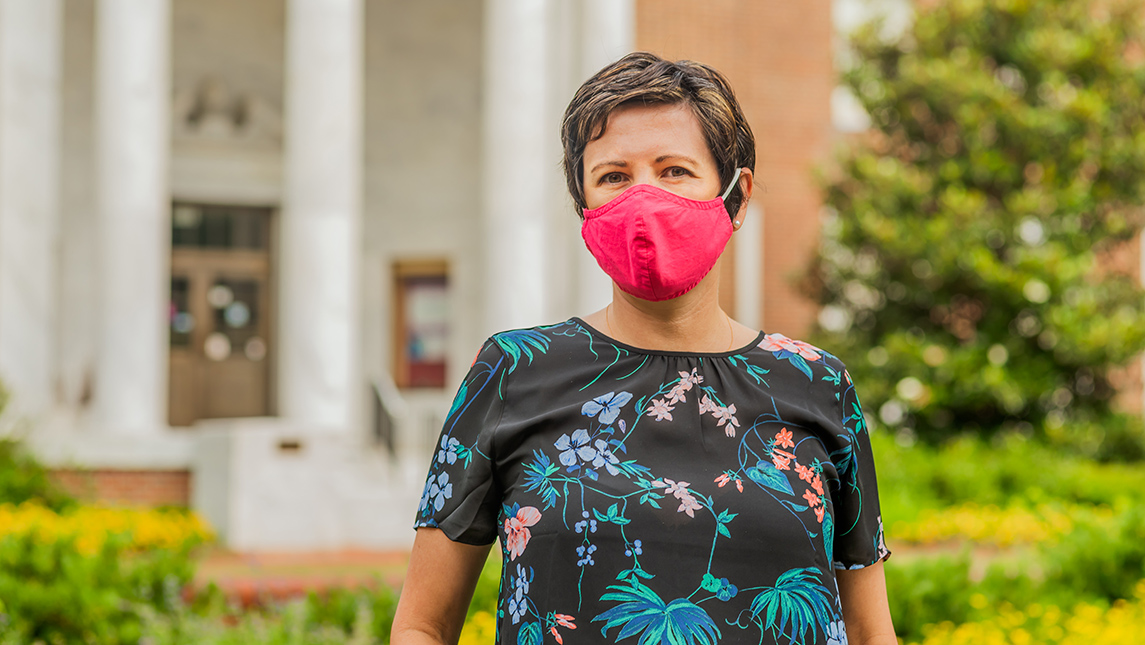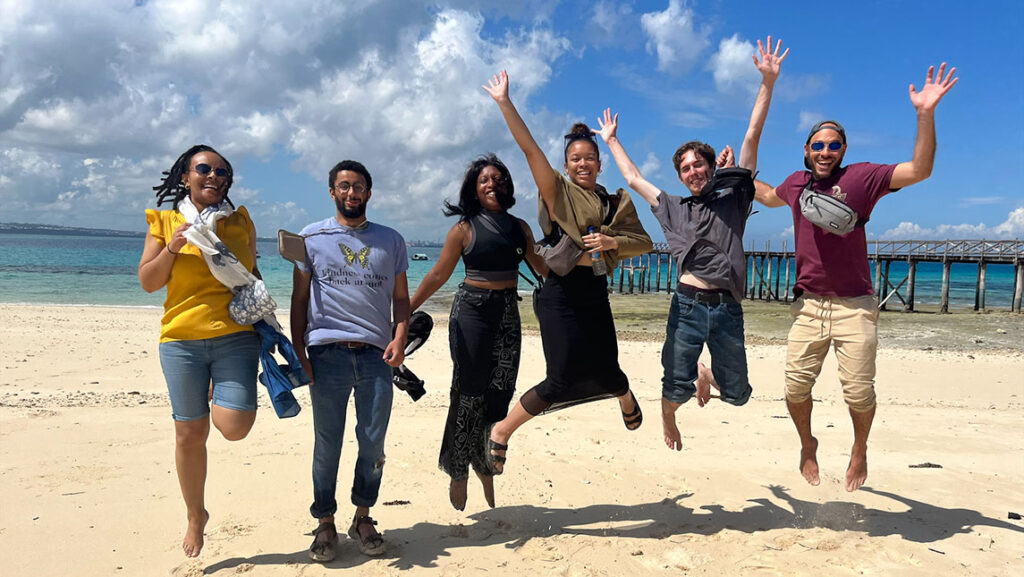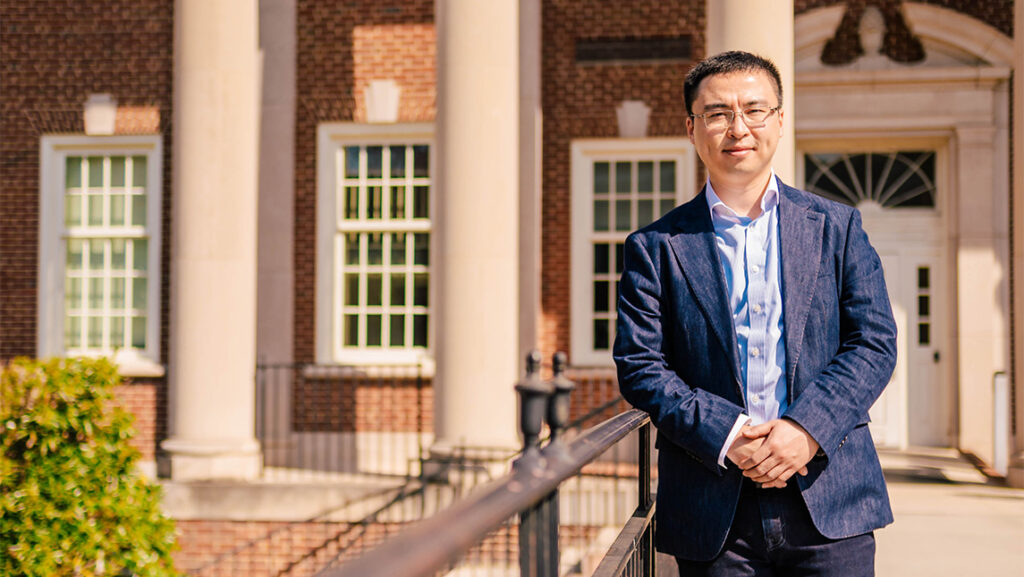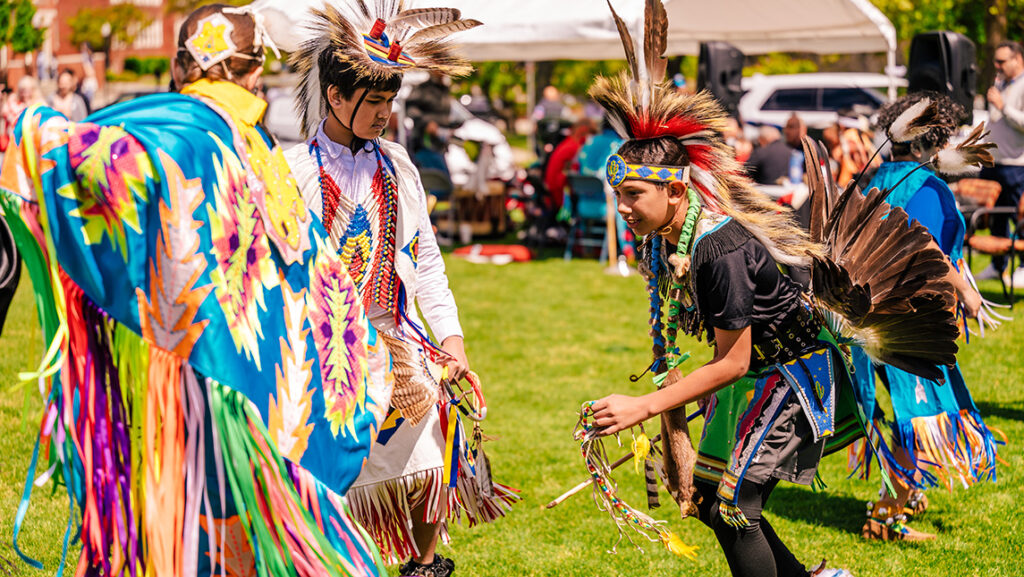
It’s perhaps the most relevant course offered at UNC Greensboro this fall: Pandemics, Plagues, and Outbreaks.
The 200-level online anthropology course, taught by Dr. Cassandra Workman, examines how anthropology can be used to understand pandemics and the role of human behavior in them.
“Throughout the semester, we’ve worked historically through several previous pandemics, including the plague, tuberculosis, the 1918 flu, and HIV/AIDS. The last module will focus on COVID-19,” Workman said.
There have been two key takeaways for Workman and her students. First, the similarities among the pandemics are striking. There’s an eerie sense of déjà vu.
“Everyone is saying these are unprecedented times, but that’s not true. Almost all of this has happened before,” said Grace Kuehr-McLaren, a junior anthropology major.
Second, for most of us here in the United States, the pandemics have been largely forgotten. We haven’t learned many of the lessons of prior pandemics.
Workman views the 1918 flu pandemic as most similar to what we are experiencing now.
“There are a lot of parallels. First, there was the initial denialism when the first cases cropped up in March of 1918. Then, the cases accelerated in the fall,” Workman said. “There were a lot of people playing it down and refusing to wear masks, which is really similar to what we’re seeing now.”
It is estimated that 500 million people – or about one-third of the world’s population at the time – became infected with the virus, and at least 50 million people died worldwide. Social and economic disparities played a role, just like they do today, with certain populations and groups being disproportionately affected by the flu.
The class also studied HIV/AIDS, a pandemic that was stigmatized and politicized here in the United States. Workman was surprised to learn how few students knew about HIV/AIDS.
“As an anthropologist, I’m really interested in this process of forgetting. I don’t think it’s just a psychological response – I think there are other social processes at play that allow us to forget these pandemics.”
So how can we prevent this “forgetting” and instead learn from COVID-19 and from past pandemics to be better prepared for the future?
“I think part of remembering has to do with trust in science,” Workman said. “I feel there’s a real mistrust in the scientific process and a misconception of public health more broadly. Science builds – it necessarily changes, and that’s a good thing. Public health exists to protect communities. It’s important that people understand how these institutions work.”
Workman taught a related course, Anthropology of Infectious Disease, back in the spring, when the pandemic first hit.
For Eric Varin, an anthropology major who hopes to work in the field of medical anthropology, the spring course provided a holistic view of the role of social factors in pandemics, and gave him a framework through which to understand this current pandemic.
“COVID-19 is something that is going to impact our lives going forward,” Varin said. “Taking a course like this helped me retool how I perceive the illness. It was incredibly relevant.”
Story by Alyssa Bedrosian, University Communications
Photography by Jiyoung Park, University Communications


